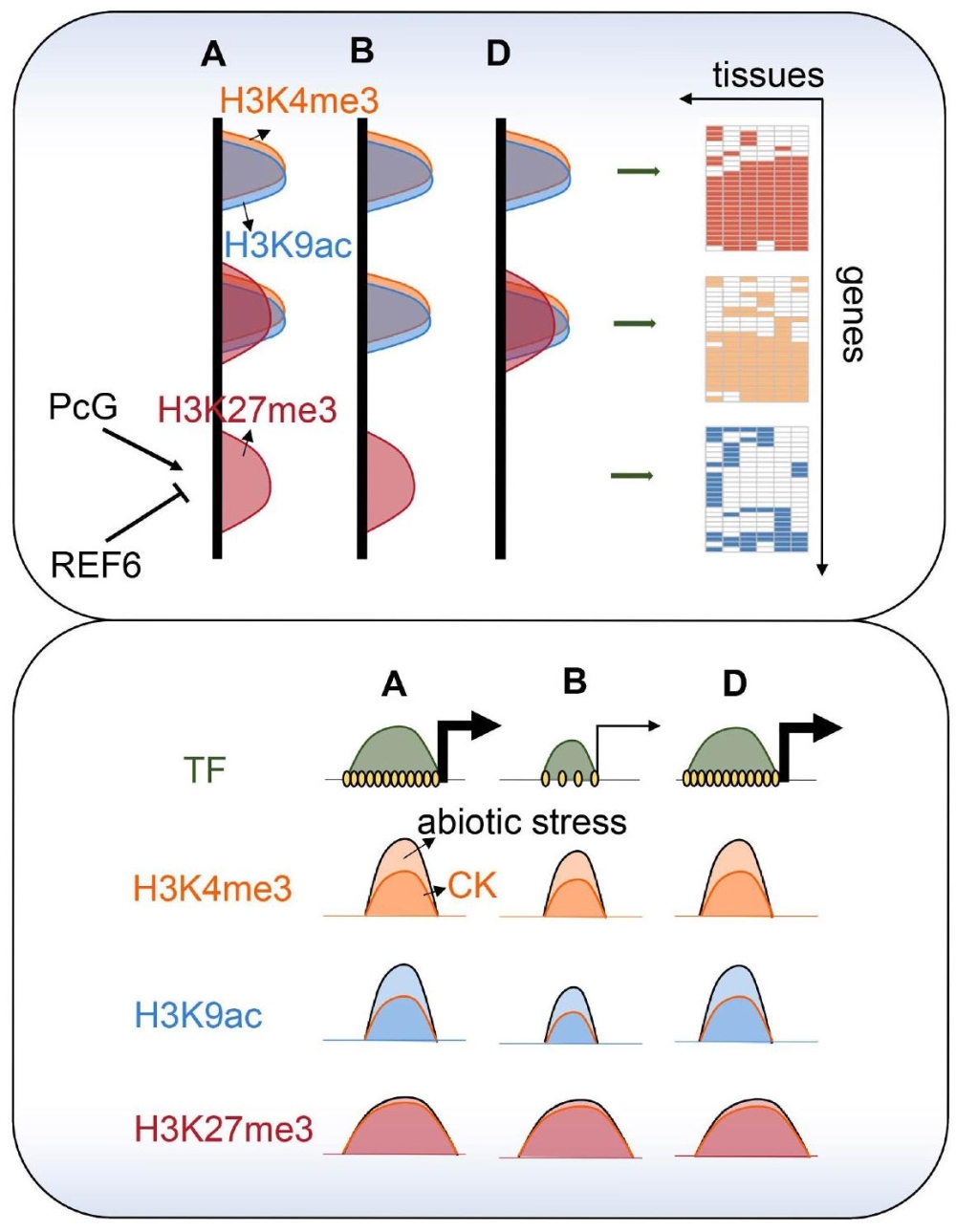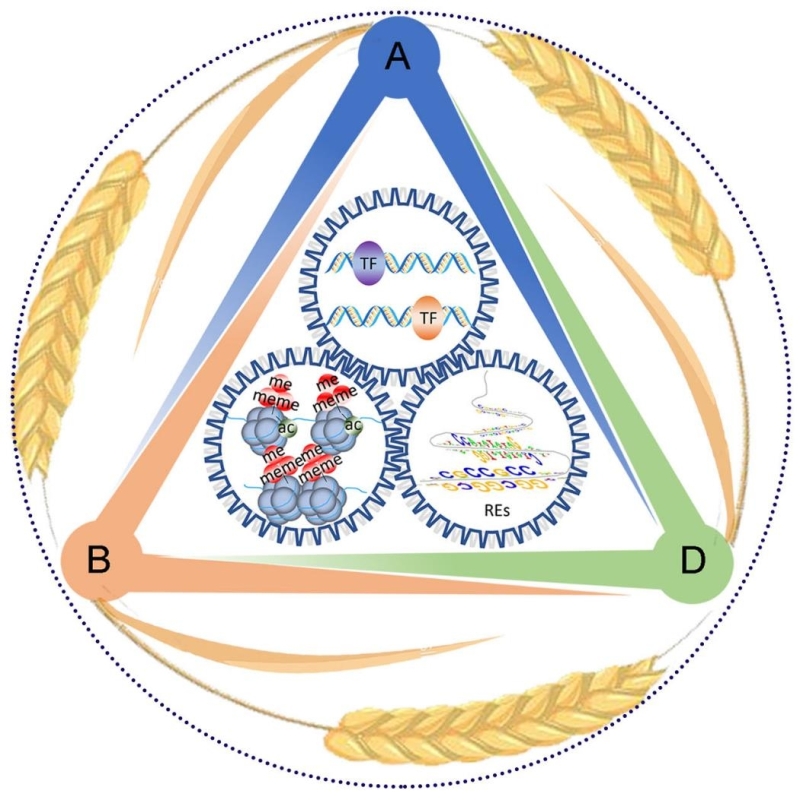How are the subgenomes of hexaploid wheat divergently regulated?
Scientists from the CAS Center for Excellence in Molecular Plant Sciences and the Institute of Genetics and Developmental Biology revealed the subgenome-divergent regulation of development and stress responses via profiling the atlas of wheat epigenetic regulatory elements. This work was published online in The Plant Cell entitled “An atlas of wheat epigenetic regulatory elements reveals subgenome-divergent regulation of development and stress responses” on February 3rd. An invited comment entitled "Epigenomic atlas in wheat reveals regulatory elements specifying sub-genome divergence" was also published.
The widely-cultivated wheat (Triticum aestivum) has a large allohexaploid genome. Subgenome-divergent regulation contributed to genome plasticity and the domestication of polyploid wheat. However, the specificity encoded in the wheat genome determining subgenome-divergent spatio-temporal regulation has been largely unexplored. The considerable size and complexity of the genome are major obstacles to dissecting the regulatory specificity.
In this study, the authors compared the epigenomes and transcriptomes from a large set of samples under diverse developmental and environmental conditions. Thousands of distal epigenetic regulatory elements (distal-epiREs) were specifically linked to their target promoters with coordinated epigenomic changes. They further revealed that subgenome-divergent activity of homologous regulatory elements are affected by specific epigenetic signatures. Subgenome-divergent epiRE regulation of tissue specificity is associated with dynamic modulation of H3K27me3 mediated by Polycomb complex and demethylases. Furthermore, quantitative epigenomic approaches detected key stress responsive cis- and trans-acting factors validated by DNA Affinity Purification and sequencing (DAP-seq), and demonstrated the coordinated interplay between epiRE sequence contexts, epigenetic factors, and transcription factors in regulating subgenome divergent transcriptional responses to external changes. Thus, this study provides a wealth of resources for elucidating the epiRE regulomics and subgenome-divergent regulation in hexaploid wheat, and gives new clues for interpreting genetic and epigenetic interplay in regulating the benefits of polyploid wheat.
Dr. Zhang Yijing of the CAS Center for Excellence in Molecular Plant Sciences, and Dr. Yongbiao of the Institute of Genetics and Developmental Biology are the co-corresponding authors of the paper. PhD student Meiyue Wang, Yuyun Zhang and Dr Zijuan Li and Dr. Yu'e Zhang are the co-first authors of the paper. Professor Wenli Zhang of Nanjing Agricultural University and Researcher Yiping Tong of the Institute of Genetics and Developmental Biology jointly participated in this work. This study was supported by the National Natural Science Foundation of China and the Strategic Priority Research Program of the Chinese Academy of Sciences.

Figure1. Summary of main findings.
Top panel: subgenome divergent RE regulation by H3K27me3 contribute to tissue specificity.
Bottom panel: coordinated subgenome-divergence between epigenomic profile, TF binding and cis-element density during stress responses.

Figure2. Schematic diagram illustrating the interplay among REs, epigenetic factors and TFs in regulating subgenome-divergence.
Article link:
https://academic.oup.com/plcell/advance-article/doi/10.1093/plcell/koab028/6126469
In brief link:
https://academic.oup.com/plcell/advance-article/doi/10.1093/plcell/koab038/6126477
Contact:
Dr. Yijing Zhang, Professor
National Key Laboratory of Plant Molecular Genetics, CAS Center for Excellence in Molecular Plant Sciences (CEMPS), Chinese Academic of Sciences
Tel: 86-21-54924206
Email: zhangyijing@cemps.ac.cn